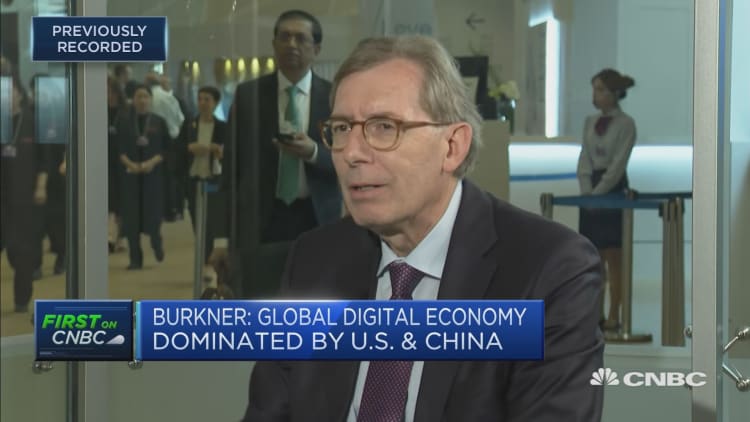
The trade war may or may not be on hold, but the tech war shows no signs of abating.
U.S. President Donald Trump and Chinese President Xi Jinping offered international observers reassurances over the weekend that they could be moving closer to resolving their trade dispute after agreeing to a freeze on any further tariffs.
However, further frictions are to be expected, according to the chairman of Boston Consulting Group — not least in technology.
Hans-Paul Burkner told CNBC on Monday that "everyone will be happy" that trade negotiations have recommenced between the two economic superpowers. But he warned that their competing ambitions for technological dominance remain a major sticking point, and one that could lead to the emergence of two, separate tech ecosystems.
"There is still a possibility that we will really have two technology worlds: a Chinese one and a U.S. one," the management consulting firm's chairman said.
Such a divide would, in theory, see technologies, such as the internet, governed by separate institutions and even regulations based on the jurisdiction from which they are provided. In the context of the internet, that prospect has been dubbed the "splinternet."
And already the U.S. and China have begun vying for support, said Burkner, speaking at the World Economic Forum in Dalian, China.
"Clearly, you have the Chinese and the U.S. technology companies competing in India, in Europe, in Latin America," he said, "so the rest of the world is truly the battleground."
Burkner said the prospect of such a split remains far off, because China has a long way to go to win market share in the rest of the world. However, he said he believes it's only a matter of time before Chinese tech giants like Huawei become real global players.
"At the moment, the Chinese are moving rather slowly into the rest of the world," said Burkner, who added that it will happen nonetheless.
In reference to the possibility of two tech worlds, he added: "Hopefully it will not come to that, but it's not impossible."


